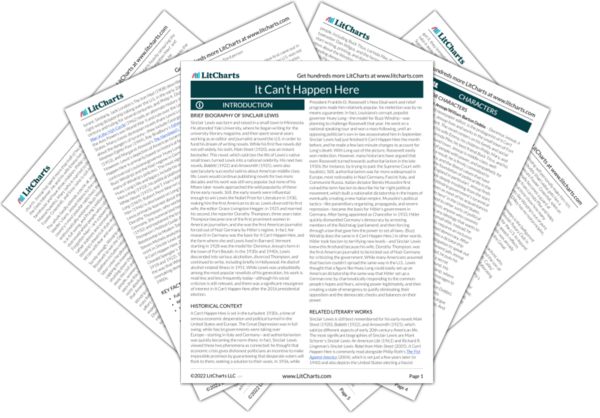Jessup’s sweet freedom only underscores the horrors of fascism: after his time languishing in the concentration camps, even the most ordinary comforts now seem like extraordinary luxuries to him. Above all, he cherishes the chance to spend time with the two women he loves most. Fascism has torn Americans’ families apart and infused their lives with a constant sense of fear and suspicion, but Jessup’s relationships with Lorinda and Sissy are still completely trusting and authentic. Yet going to Canada will mean leaving them behind.
